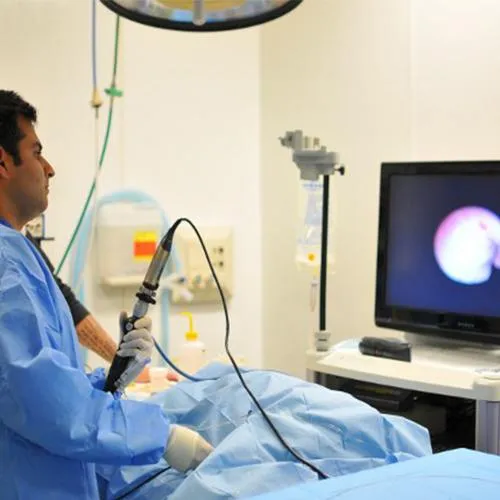
Cystoscopy: A Key Diagnostic Tool for Bladder Health | Milton Keynes & Oxford
Introduction: What is a Cystoscopy?
A cystoscopy is a procedure that allows a urologist to examine the inside of the bladder and urethra using a cystoscope, a thin, flexible tube equipped with a light and camera. This procedure is essential for diagnosing and monitoring various urological conditions, including bladder cancer, recurrent urinary tract infections, and other bladder abnormalities.
At Mr. Angus Campbell’s clinics in Milton Keynes and Oxford, cystoscopy is used to evaluate a wide range of urological issues, providing a clear view of the bladder's interior and helping to determine the best course of treatment.
Why is a Cystoscopy Performed?
A cystoscopy may be recommended if you experience:
Blood in your urine (hematuria)
Frequent urinary tract infections
Chronic pelvic pain
Difficulty urinating or a weak urine stream
Bladder control issues
In addition to diagnosing bladder issues, cystoscopy is also used for:
Monitoring Bladder Cancer: After bladder cancer treatment, cystoscopy is regularly performed to monitor for cancer recurrence.
Removing Bladder Stones: Small stones in the bladder can be removed during cystoscopy.
Diagnosing Interstitial Cystitis: A chronic bladder condition causing pain and frequent urination.
Types of Cystoscopy: Flexible vs. Rigid
There are two main types of cystoscopy:
Flexible Cystoscopy: This is performed using a flexible cystoscope and is typically done under local anesthesia. It’s less invasive and causes minimal discomfort.
Rigid Cystoscopy: This involves a rigid cystoscope and may require general anesthesia or sedation. It’s often used for more complex procedures, such as taking biopsies or removing bladder stones.
Learn more about how Cystoscopy can diagnose bladder conditions at our clinics.
What to Expect During a Cystoscopy
Before the procedure, your doctor will discuss the type of cystoscopy you'll be having and what to expect. In most cases, you’ll be asked to empty your bladder before the procedure begins.
The Procedure
You will lie on your back with your knees bent and legs apart.
The cystoscope is inserted through the urethra and gently guided into the bladder. The camera at the end of the cystoscope sends real-time images to a monitor, allowing the doctor to examine the lining of the bladder and urethra.
Sterile water may be introduced into the bladder to allow for better visualization.
The procedure usually takes about 15 to 30 minutes.
Recovery After a Cystoscopy
After a cystoscopy, you may experience some mild discomfort, such as a burning sensation when urinating or the need to urinate more frequently. This typically resolves within a day or two.
To ease discomfort:
Drink plenty of water to help flush your bladder.
Avoid strenuous activities for 24 hours.
You may notice a small amount of blood in your urine, which is normal and should clear up within a day.
Risks of Cystoscopy
Cystoscopy is generally safe, but like any medical procedure, there are some risks, including:
Infection: The most common risk is a urinary tract infection (UTI). Your doctor may prescribe antibiotics to prevent this.
Bleeding: Some minor bleeding is normal, but if it continues or worsens, you should contact your doctor.
Bladder Injury: Rarely, the cystoscope may cause injury to the bladder or urethra.
For more detailed information on cystoscopy watch this video below.
Downloadable Resources:
For more detailed information on cystoscopy procedures, you can download these helpful patient guides from BAUS:
Flexible Cystoscopy Patient Guide (PDF) – An informative guide on what to expect during a flexible cystoscopy procedure.
Rigid Cystoscopy Patient Guide (PDF) – A detailed overview of the rigid cystoscopy procedure, including preparation and recovery.
